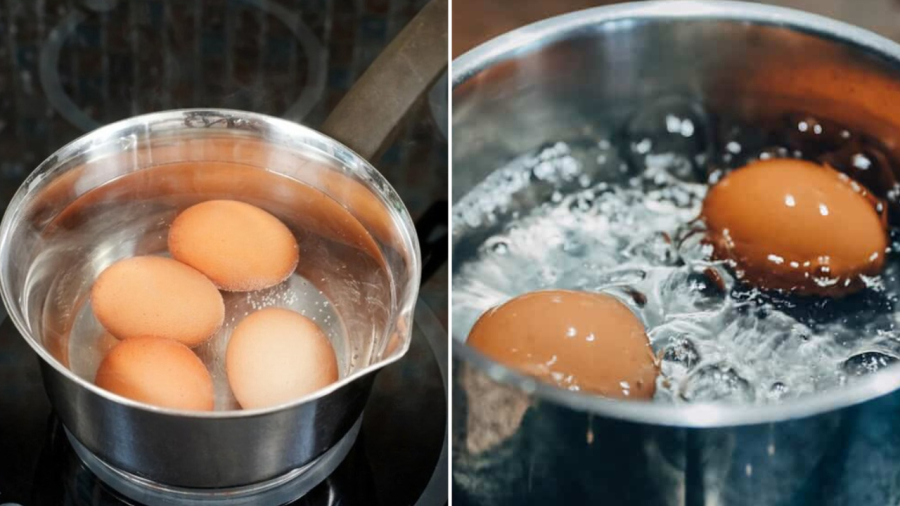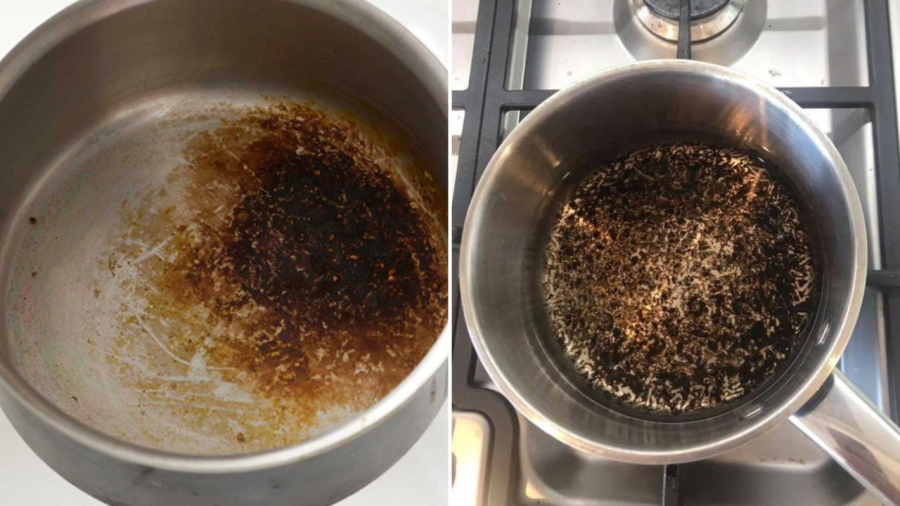Why Does the Bottom of the Pot Turn Black After Boiling Eggs?
Why does the bottom of the pot turn black after boiling eggs? Is it due to low-quality pots or bad eggs?
You may have noticed that the bottom of the pot often turns black after boiling eggs. This is a common occurrence and is not related to the quality of the pot or the eggs themselves.

The bottom of the pot often turns black after boiling eggs.
Eggs contain high levels of amino acids, and when heated, they release sulfur in the form of hydrogen sulfide (H2S). Egg yolks also contain iron, which combines with H2S to form iron (II) sulfide (FeS). This black substance is insoluble in water and will adhere to the pot, creating a dark film.
So, whenever you boil eggs, don’t be surprised if your pot turns black. To remove this coating, simply clean the pot with lemon, vinegar, or baking soda.
Tips to Clean the Pot
If your pot is stained with burnt food from overcooking, try these simple tips to clean it effectively.
– Use Salt
Salt is inexpensive, easily accessible, and a common ingredient in most kitchens. Besides seasoning your food, salt can also be used to clean the burnt bottom of your pot.
Fill the pot with water, ensuring it covers the burnt areas, and add two spoons of salt. Stir the solution and let it soak for about an hour. For better results, place the pot on the stove, boil the water, and let it soak for another hour. Then, pour out the water and scrub the pot with dish soap and clean water.

There are several methods to remove burnt food stains from the bottom of a pot.
– Use Salt and Potato
Potatoes contain oxalic acid, and when combined with salt, they create a mild corrosive cleaning agent. Cut a potato in half and sprinkle salt on the bottom of the pot. Then, use the cut side of the potato to scrub the salted area. Add more salt if needed and continue scrubbing until the burnt residue comes off. Rinse the pot thoroughly afterward.
Lemon and vinegar are acidic and can help soften burnt food residue at the bottom of the pot.
Cut a few lemons and place them in the pot. Add water until the burnt areas are submerged. Place the pot on the stove and bring the water to a boil. Reduce the heat and let it simmer for a few minutes to loosen the residue. Turn off the heat and let the pot cool down. Pour out the water and scrub the pot clean.
You can also use vinegar instead of lemon for similar results.






























